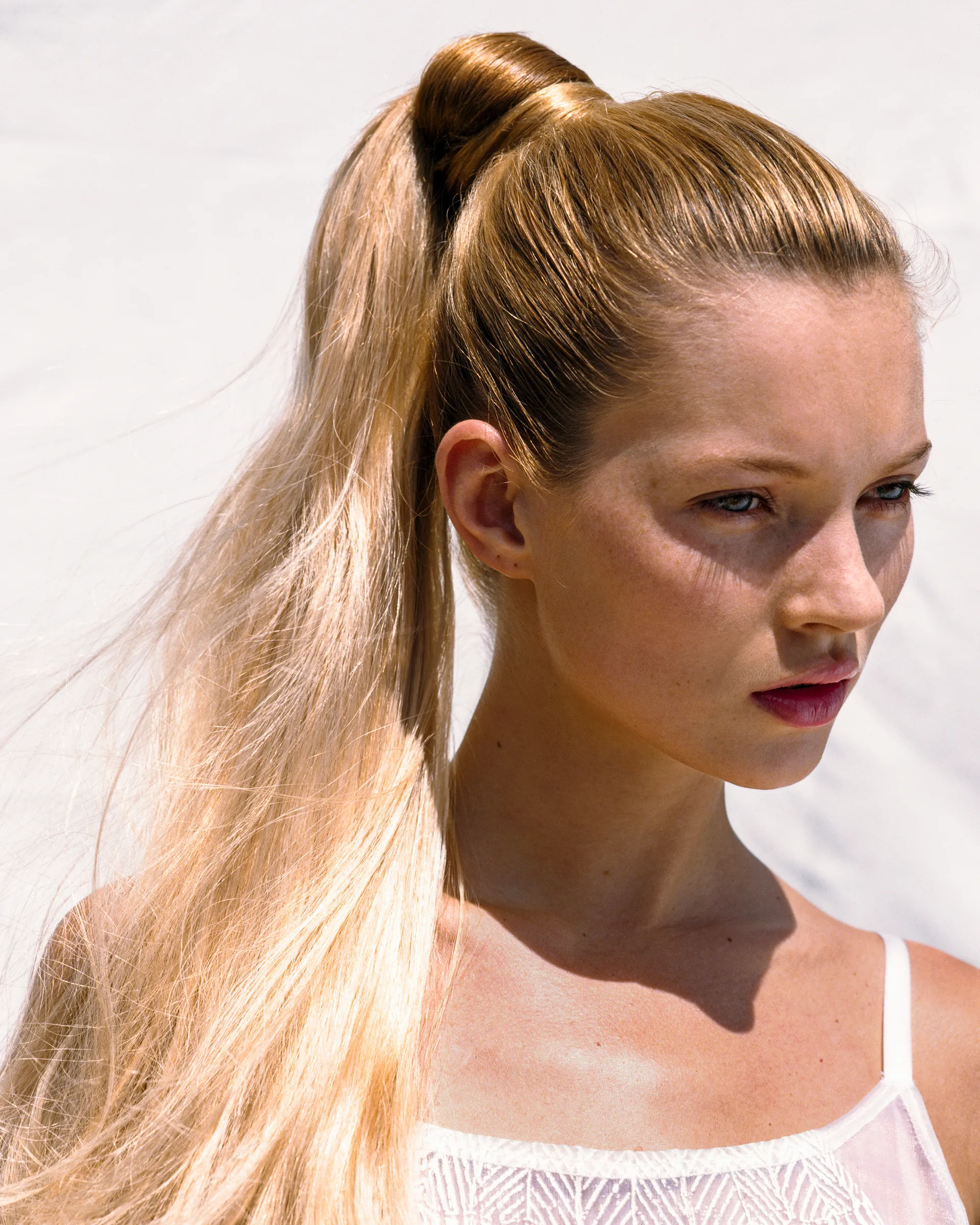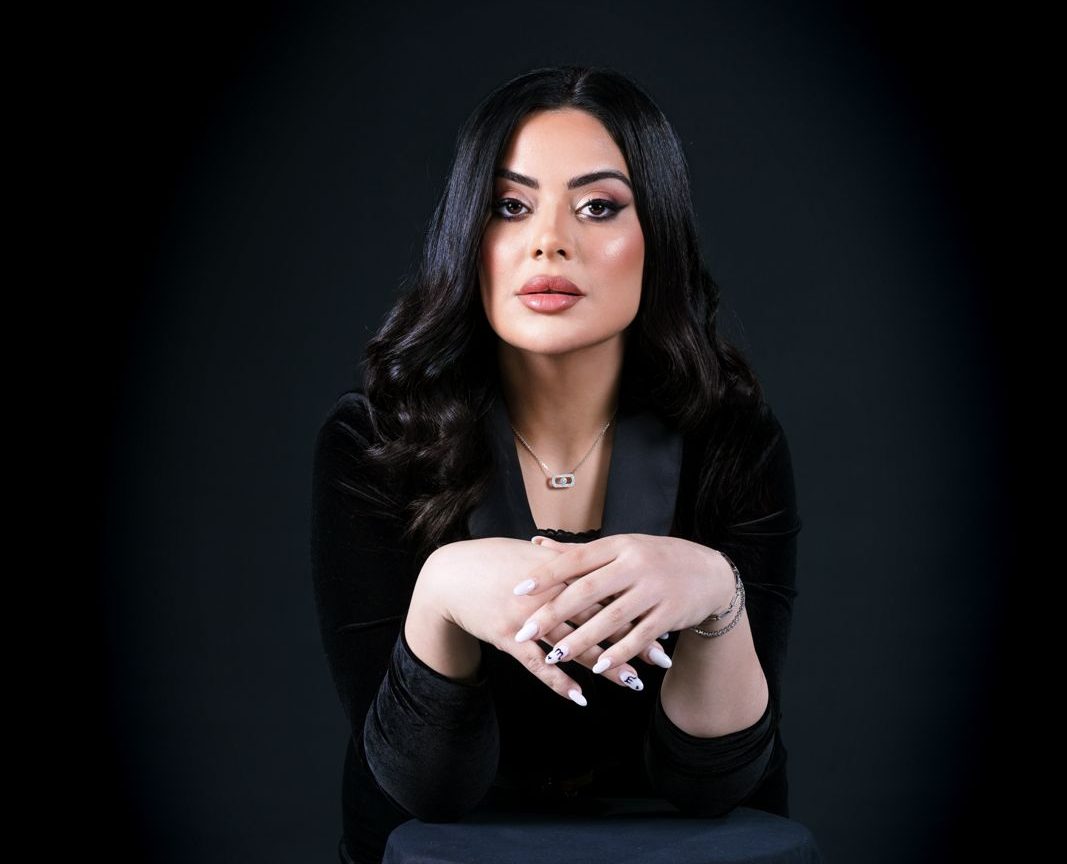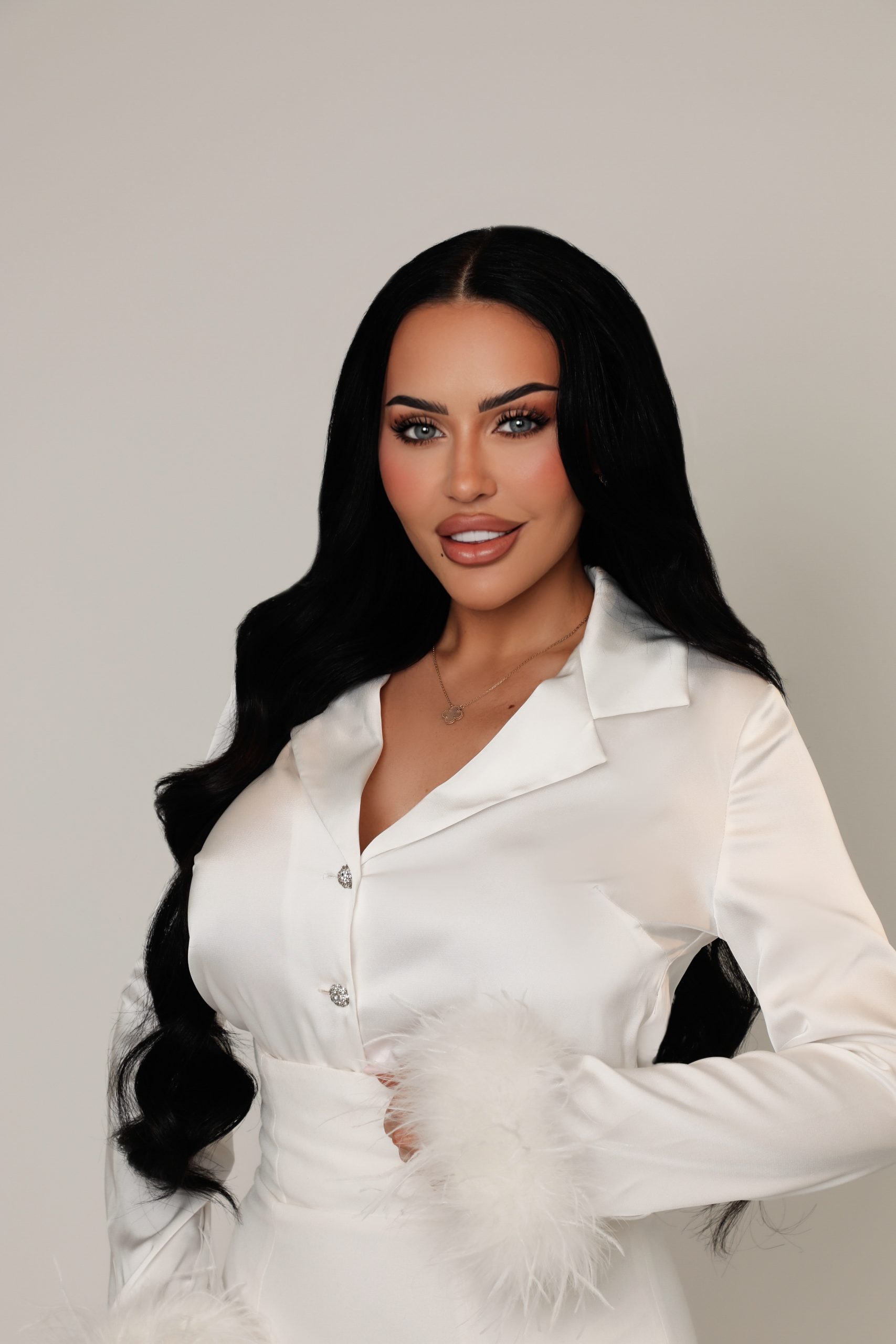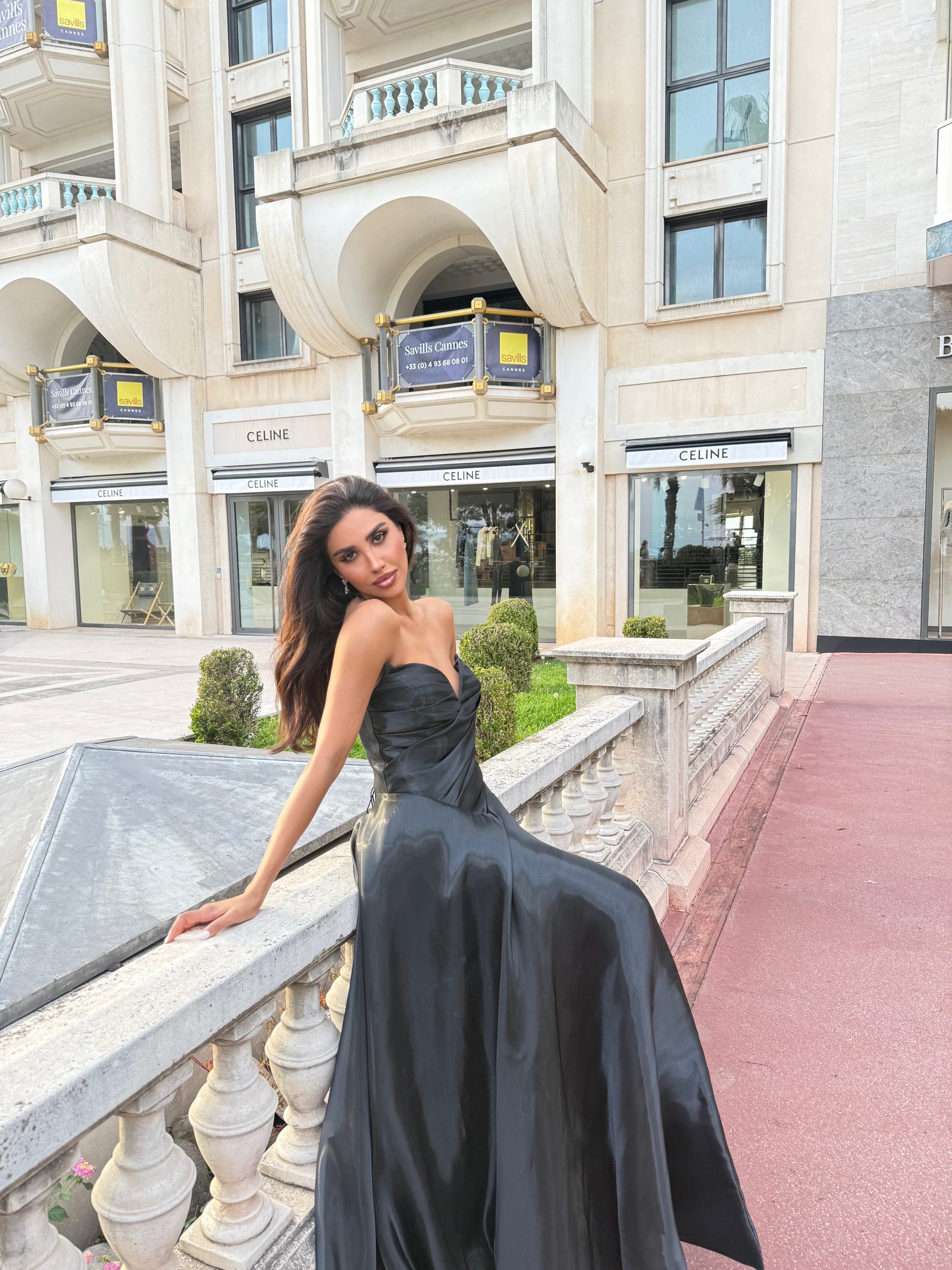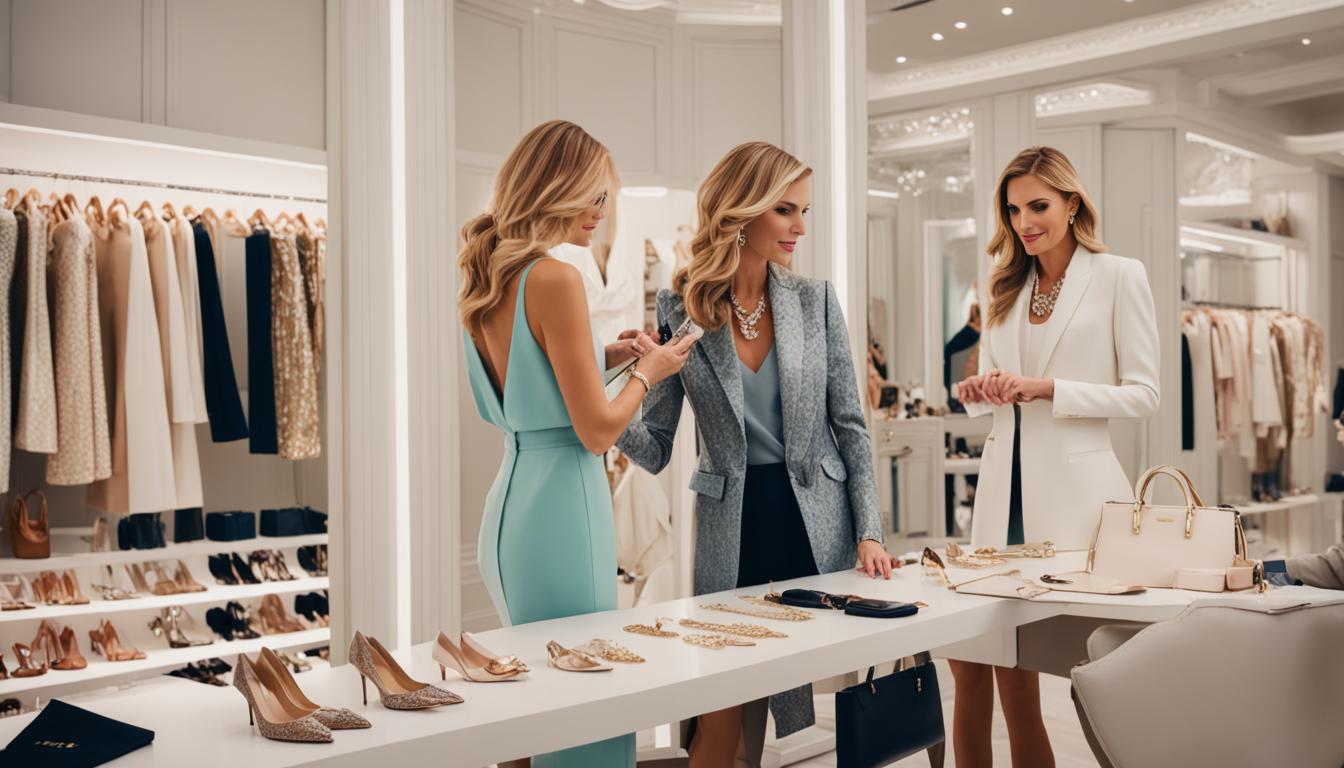. A ponytail? What am I, 12? But we’re not talking about tying your hair up for HIIT class or staggering through your skin care routine. These are ponytails with purpose: high-swinging, high-gloss arrangements with their roots in high fashion. (Less Disney Channel, more Madonna’s Blond Ambition tour.) Ponytails have topped off all sorts of glamorous folks lately, from runway stars like Irina Shayk at Mugler’s fall show to Jill Kortleve at Alexander McQueen—who also sported a spine-tracing hip-length style on her April British Vogue cover. Add in red carpet looks by Florence Pugh and Rihanna, a dash of street style omnipresence (looking at you, Bella Hadid), and you’ve got a recipe for a bona fide moment for the topped-off mane.
I can vouch. At the pre-Oscars parties in Los Angeles I attended this spring, I lost count of the tight-as-anything ponytails cresting the faces in attendance. And about those faces! The prominent cheekbones weren’t all due to clever contouring or Ozempic abuse. “You know,” one visibly tautened friend confided, swinging her own rope of tresses over her shoulder, “a tight pony in the right hands is like a facelift without the downtime—it’s like how old screen idols and drag queens used to tape.” (Not for nothing, there is even a plastic surgery procedure using absorbable threads dubbed the “Ponytail Lift.”) It’s all just about enough to make a girl grab her hair and yank.
That’s a relatively new impulse for me: In my life, the ponytail’s arrival signified an adolescent independence from the (admittedly very cute) matching bobs my sister and I previously wore with our lace-collared smock-front dresses and opaque white tights. Once I was allowed to grow out my hair, I pulled it back and forgot all about it. In the wider scope of history, the ponytail’s precise provenance is a bit hazy. Some hair historians have pointed to ancient Greece for the style’s origins, but it’s easy enough to believe that any Homo erectus in possession of long tresses might have wanted to keep them at bay one way or another.
The pony “always feels modern if it’s done well,” says stylist Cyndia Harvey, who refers to herself as a “hair engineer,” and crafted those swishy signifiers for Mugler. “A ponytail is a look that can be sexy, elevated, and, of course, powerful,” she says, but it could just as quickly add a “hard, boyish, and masculine, or youthful, easy, and effortless element,” depending on angle and positioning. If you want a minimalist look, for example, Harvey recommends trying a low, sleek pony. For the full Mugler “snatched” effect, prep the scalp with a reinforcing root serum and follow with the product (hairspray, gel, etc.) best suited to your texture—then blow out, hoist, smooth, and secure. Short hair? Try extensions, like Harvey did with Hunter Schafer for Mugler’s new Angel Elixir fragrance campaign.
Stylist Teddi Cranford says the expensive-looking ponytail is one of her go-tos when cool-girl clients like Behati Prinsloo come looking for a head-turning look. I, too, would like to turn heads, and I would also like a lift—of the hair, spirits, and face! For a friend’s engagement party, I ditch my regular long, loose look in favor of a rich, full ponytail. I follow Cranford’s advice for a decadent blowout at home, washing my hair with a hydrating shampoo and conditioner before blowing it dry with a large round brush, making sure the roots are straight and voluminous before smoothing everything out and tying it back.
“It’s all about the base,” says Cranford, “and tending to your hairline, and covering the elastic, and finding the exact right position for your face.” The finished effect is sophisticated and somehow a little more serious than I expected. My hair feels like an extra accessory, adding poise, movement, and—dare I say—youthful exuberance in its sway? Turns out flying high (and tight) suits me just fine.








